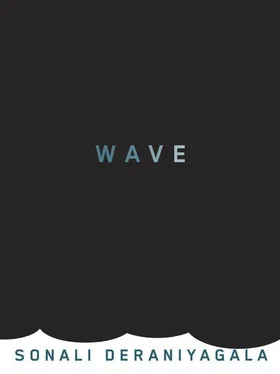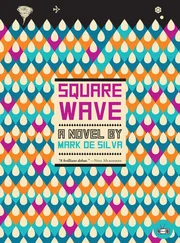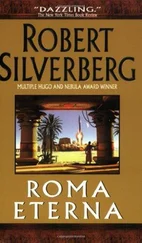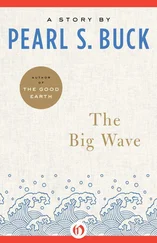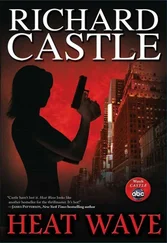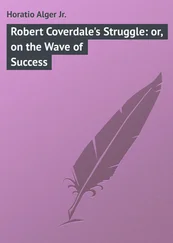This house sparks and almost still chimes with them.
On a counter in the kitchen there are a couple of CDs, out of their covers. In those last months, Steve played these for the boys, music from his youth. Vik would jump up and down gracelessly to “Our House” by Madness. The three of them would belt out Ian Dury’s “Hit Me with Your Rhythm Stick”—yelling the words “ ‘It’s nice to be a lunatic, hit me!’ ” That energy, I can retrieve it now. It still crackles within these walls.
An old shoebox lets out the smell of Sunday evenings. It’s Steve’s shoe-polishing box. I rummage in it. Together with the polishes and the brushes, there is the rag he used for that final buff, the same one he’d had for years and years. He’d sit on the stairs on a Sunday evening and shine his shoes and the boys’. I hold that rag to my nose, and it still smells of the start to our week. My face is wet with crying. Yet how welcome, this old rag that tells me it was true, our life.
This is my worst day of life . These words are written in Vik’s handwriting on the sofa in the playroom. I’m taken aback. I’ve never seen this. Not before the wave or after. Why did he write it? Something I did? A playground fight that upset him and I ignored? Then I see some football scores he’s written on the arm of the sofa — Liverpool lost. For some moments I’m relieved. But then, how much I want to console him, and I am helpless.
In these past years, I’ve pushed away thoughts of my children’s everyday hurts and fears, suggestions of their frailty and tenderness. It’s easier to remember my boys with humor or to recall their cheek. But now as I dare to peer more closely at them, they emerge more whole.
For years I’ve told myself it’s pointless to cherish my children’s personalities and their passions, for they are now dead. But here in our home I am surrounded by proof of it all. I unlock my mind a little and allow myself to know the wonder of them.
Our friends often remarked that our boys were remarkably focused on what enthused them, almost unusually so for their ages. I sometimes wished Malli could be distracted from his theatrics, so he might learn to spell. Everything in our living room — a brocade throw, a carved wooden window frame from Nepal, a brass cobra — was a prop for the “shows” he plotted and fervently rehearsed. That fantasy world he moved in. With his collection of puppets and his swirl of costumes, he was constantly morphing a new story into being. His imaginings were often curious. In our study I find a typically toddler painting of blue and brown blotches. Malli did this when he was about three. “Nice, nice, Mal. What is it?” I asked him then, distractedly. “A man who lost his hands in a puddle,” he replied, not stopping to think.
Steve and I encouraged our son’s meanderings, defending him when his teacher complained that he held up the science lesson by insisting that cars were alive. But I worried about Malli’s five-year-old cunning the day he deliberately tripped his brother up on the street. I wasn’t there, our nanny described what happened, and Vik had a gash on his head. “And the police saw you doing this and called me to complain,” I scolded, taking my own story too far now. He believed me but was undaunted. “They didn’t say what time it happened, did they? They didn’t say what color the two boys were, maybe the boys were white, some other boys.” “Will he be a criminal or a judge?” I later asked Steve.
Their promise, my children’s possibilities, still linger in our home.
Everywhere in this house are sheets of A4 filled with Vik’s calculations, all sorts. Vik was quite astonishingly quick. I sit on our bed and remember those hours before bedtime when he would be beside me, intent on some math problem he’d pestered me for. The boy grasped concepts effortlessly, and Steve and I had to keep him curious. He’d recite to us minutiae about some aspect of the natural world he was fanatical about. He inhaled information about whatever creature stirred him, and often it seemed he became one with them. When he was younger, he’d stand in front of the brachiosaurus skeleton in the Natural History Museum in London (that place was our second home, Vik could walk through it blindfolded), his neck stretching out, his body contorting, as he fused with the giant sauropod. More recently, I’d noticed how he watched eagles, easing into their glide, the raptor’s eyes in his.
Vik and I would lie together on his bed and chat, in that calm half-hour before his bedtime. His eyes would be afire as he told me about the theater group that had visited his school that day, everyone in his class took part in The Tempest , it was brilliant, he was Prospero. Or I’d flick through his cricket magazine and say, “Wow, he’s handsome,” at a photo of Rahul Dravid. “Aw, who do you love, Mum, Dad or Dravid?” he’d admonish me, quick to look out for Steve, the king of dads. Now I sit alone on the same bed, and our easy companionship, Vik’s and mine, returns with such exactness. I can see him, rolling up his pajamas to carefully peel away a scab on his knee. And I don’t insist myself back to reality as I usually do. Maybe it is not so overwhelming after all, to dissolve the divide between now and then.
But this does make me mad with wanting them. I let myself miss them more unreservedly now, at times at least. I rein in my yearning less. So I lie under the apple trees at the foot of our garden, on a mat still flecked with our picnics, and look up at two empty bird feeders that Steve once tied to the branches. And I want more than anything to hear my boys natter on a Saturday morning as they fill those feeders with “birdie nuts.”
Maybe yearning for them more freely gives me some relief. When I tried to tame my ache for them, especially here in this house, it didn’t ease my pain. On my earlier visits here, in the evenings especially, their absence came bounding at me off walls and trees, the desolation clobbered me. There is a difference now. Their absence is not so heavy, not so leaden, it seems. I sleep wearing Steve’s sarong, and I remember trying to inch away from him as he insisted on sleeping wrapped up in me. And how badly I still want that. Yet I am warmed by this knowing and this wanting. It helps me to better tolerate the bareness of our bed.
By knowing them again, by gathering threads of our life, I am much less fractured. I am also less confused. I don’t constantly ask, Was I their mother? How can so much of my life not even seem like mine?
I can recover myself better when I dare let in their light.
There are red pen marks rising up a wall in our living room where Steve and I would measure the boys’ heights. I see those inexact squiggles and instantly lean right back into who I was. I know it was me who settled those squabbles about who had grown the most. I know it was me who scolded Malli for standing on tiptoe to be taller, his heels right up on those slightly peeling skirting boards on that wall. And yes, it was me who’d tell Vik that it was silly to drink half a pint of milk just before I measured him — you won’t get instantly taller, now will you? And without thinking I lightly kiss those red Biro marks just as I would the tops of their heads. Then I slump to the floor with my back against that wall.
H ere in our home of all places, I am surprised to find that, sometimes at least, they leave me alone. In the green dusk of our garden, a daddy longlegs stumbles along the rim of my chilled wineglass. Then I remember. It was at this time of year that we moved into this house.
It was one of those rare hot June days in London, much like today. I’d always coveted these strapping Edwardian houses, their redbrick exteriors radiant in the sun. And we’d found one just right for us, easy, inviting, not likely to be ruffled by our chaos. For now we could live with its imperfections, such as the swirling green and mustard carpet in the hallway that looked like it belonged in a pub in the 1970s. We’ll pull it up soon and repair those cracked original tiles underneath, of course, but no rush.
Читать дальше
